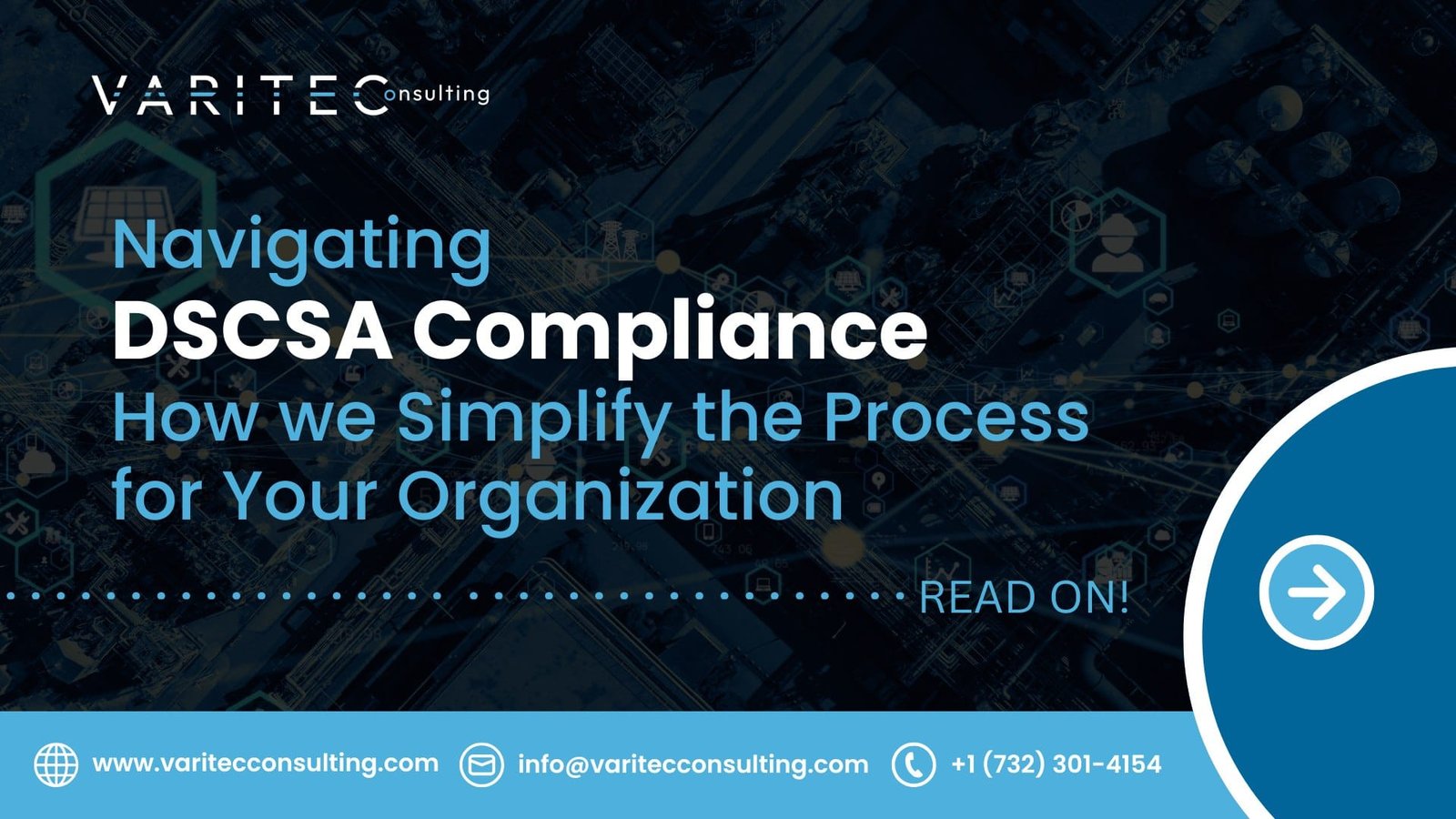In today’s global market, transparency, traceability, and compliance in the supply chain are more critical than ever. Serialization and supply chain compliance services are essential in helping businesses adhere to regulatory requirements, protect consumers, and ensure product authenticity. These services enable companies to track and trace their products throughout the entire supply chain, from manufacturing to the end user.
Let’s explore the importance of serialization and supply chain compliance, how they work, and the benefits they bring to industries worldwide.
What is Serialization?
Serialization is the process of assigning a unique identifier to each product unit, allowing it to be tracked throughout its lifecycle. This unique identifier can be a serial number, barcode, or QR code that encodes specific data about the product, such as its origin, batch, and production date. Serialization creates a digital “fingerprint” for each item, enabling precise tracking from manufacturing to distribution and, ultimately, to the end consumer.
Serialization is crucial in industries where authenticity, traceability, and compliance are essential, including pharmaceuticals, food and beverages, electronics, and cosmetics.
Why is Serialization Important?
Serialization goes beyond simple inventory tracking. It provides enhanced visibility and accountability, helping businesses protect consumers, prevent counterfeiting, and comply with regulatory standards. Serialization brings several key advantages:
- Counterfeit Prevention
Counterfeit goods not only harm brands but can also pose significant risks to consumers. Serialization helps companies verify the authenticity of each product, making it challenging for counterfeiters to replicate unique identifiers. - Product Recall Efficiency
In the event of a product recall, serialization enables companies to identify affected units accurately, allowing for quick and efficient recalls. This minimizes the impact on consumers and reduces costs associated with recalls. - Enhanced Traceability
Serialization allows products to be traced at every stage of the supply chain. This visibility helps ensure product quality and provides companies with valuable data to improve processes. - Compliance with Regulations
Many industries, especially pharmaceuticals, have strict regulations that require serialization for compliance. By serializing products, companies can adhere to industry standards and avoid penalties.
What is Supply Chain Compliance?
Supply chain compliance refers to adhering to regulatory and industry standards throughout the supply chain. This includes tracking the movement of goods, maintaining records, ensuring product safety, and adhering to environmental and ethical standards. Compliance services are essential for companies looking to reduce risks, maintain brand reputation, and build consumer trust.
Effective compliance solutions monitor all stages of the supply chain to ensure that every process—from sourcing materials to manufacturing, warehousing, and distribution—meets established standards. Failure to comply with these standards can lead to penalties, legal repercussions, and damage to brand reputation.
Key Components of Serialization & Supply Chain Compliance Services
Serialization and supply chain compliance services include a range of solutions and practices that support traceability, transparency, and regulatory adherence. Here are the core elements of these services:
1. Unique Identifier Assignment
At the heart of serialization is the assignment of unique identifiers to individual products. This may include barcodes, QR codes, RFID tags, or other identifiers that store data on the product’s origin, batch, and production details. These identifiers allow for seamless scanning and tracking throughout the supply chain.
2. Data Management Systems
A robust data management system is essential for storing and analyzing the vast amounts of data generated through serialization. These systems record every step a product takes in the supply chain, enabling real-time tracking and historical reporting.
3. Regulatory Compliance Tracking
Compliance services monitor adherence to local, national, and international standards. In the pharmaceutical industry, for example, compliance with DSCSA (Drug Supply Chain Security Act) in the United States and the Falsified Medicines Directive (FMD) in the European Union is essential. Compliance systems keep track of these requirements, updating processes as regulations evolve.
4. Traceability and Recall Management
With serialization, businesses can trace each product’s journey from production to the point of sale, enabling precise recall management. In case of quality issues or recalls, companies can quickly pinpoint affected units and take corrective actions.
5. Anti-Counterfeiting Measures
Serialization and compliance services provide anti-counterfeiting solutions, allowing companies to authenticate products and prevent fraud. Unique identifiers are difficult to replicate, deterring counterfeiters and protecting consumers.
Benefits of Serialization & Supply Chain Compliance Services
Implementing serialization and compliance services offers many advantages, from increased transparency to enhanced brand reputation. Here’s how these services benefit businesses and consumers alike:
- Improved Transparency and Trust: Serialization provides end-to-end visibility in the supply chain, enhancing consumer trust by showing exactly where a product has been and how it was handled.
- Enhanced Consumer Safety: Serialization and compliance help ensure that only safe, authentic products reach the consumer, particularly in highly regulated industries like pharmaceuticals and food.
- Reduced Operational Costs: By efficiently managing recalls and improving product tracking, businesses can reduce the costs associated with manual data entry, recalls, and counterfeit prevention.
- Competitive Advantage: Companies that prioritize compliance and transparency have a competitive edge. Consumers value brands that demonstrate a commitment to safety and authenticity, leading to increased customer loyalty.
- Streamlined Regulatory Adherence: With serialization, companies can meet regulatory requirements more easily, avoiding fines and maintaining a positive brand image.
Real-World Applications of Serialization & Compliance Services
Serialization and compliance services are essential in various industries. Here are a few examples:
- Pharmaceuticals: Regulatory bodies worldwide mandate serialization to ensure that every pharmaceutical product is traceable, from manufacturer to pharmacy. This prevents counterfeits, ensures compliance, and improves patient safety.
- Food and Beverage: Serialization allows companies to trace the origins of food products, providing consumers with transparency regarding sourcing and production practices. In case of contamination, affected batches can be quickly identified and removed from the supply chain.
- Consumer Electronics: Electronics manufacturers use serialization to prevent counterfeiting, which is crucial for maintaining product quality, protecting intellectual property, and ensuring consumer safety.
- Cosmetics and Personal Care: Serialization helps verify the authenticity of personal care products, allowing consumers to avoid counterfeit goods that could pose health risks.
Implementing Serialization & Supply Chain Compliance Services
Implementing these services requires a thoughtful approach, balancing regulatory needs with operational considerations. Here’s a general outline of the implementation process:
- Assess Compliance Requirements
Identify the specific regulations that apply to your industry and products. This will guide the data to be included in serialization and the compliance systems to be implemented. - Choose Serialization Technology
Decide on the type of unique identifier that best suits your products, such as barcodes, RFID tags, or QR codes. - Integrate Data Management Systems
Implement data management solutions capable of storing and analyzing the data from serialized products across the supply chain. - Train Your Team
Ensure your team understands the importance of compliance and is trained on the new system, from product serialization to data management. - Monitor and Adjust
As regulatory requirements and business needs evolve, continuously monitor and adjust your compliance practices.


